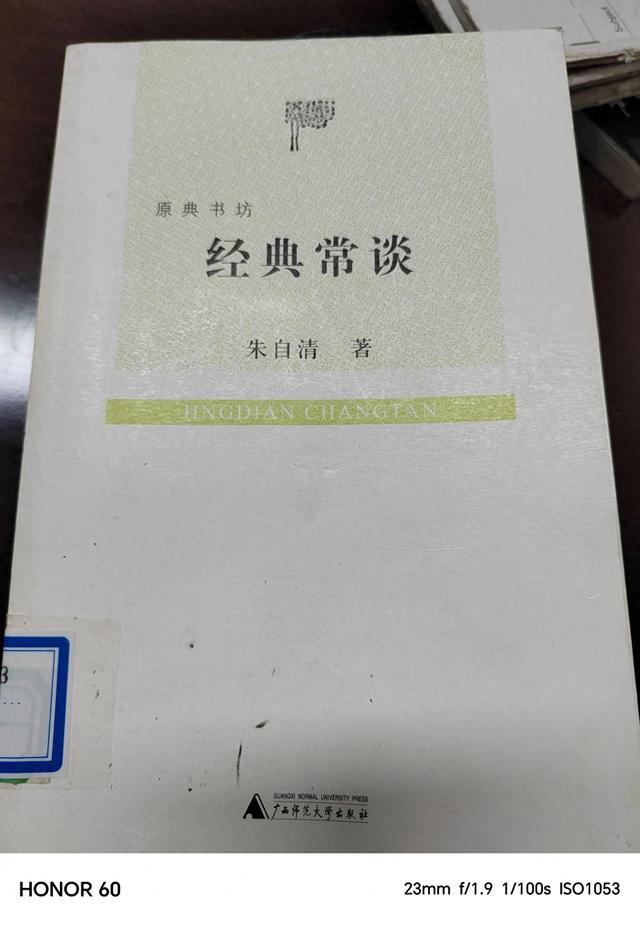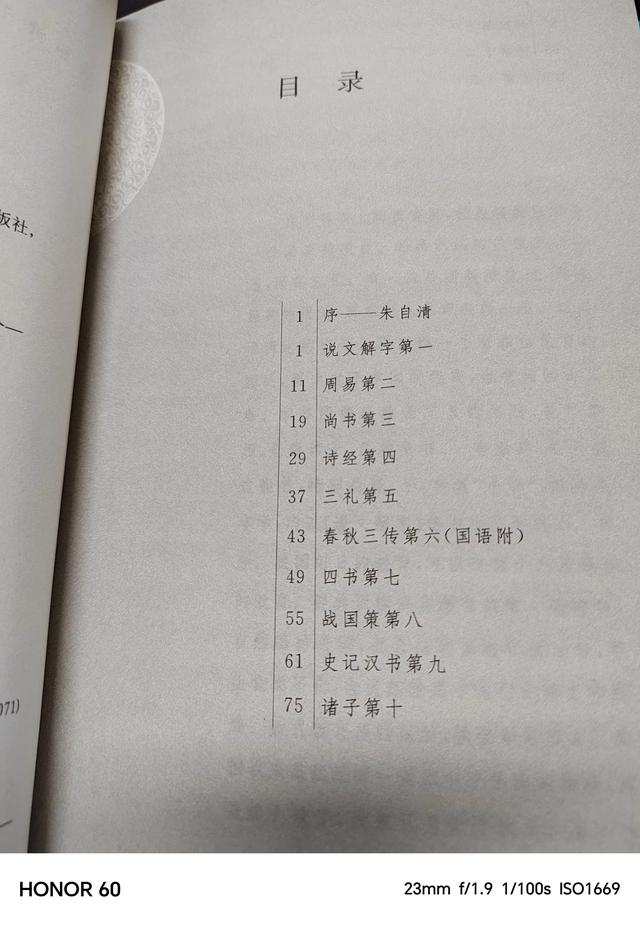朱自清先生的《经典常谈》是一部深入浅出的国学入门读物,他以平易近人的语言,向读者介绍中国古代经典著作的核心内容与思想精髓。这本书不仅是一部学术普及读物,更是一座连接现代读者与传统文化的桥梁。读完此书,我深感经典的永恒魅力,也对朱自清先生的教育情怀深感敬佩。

《经典常谈》涵盖了从《诗经》《尚书》到诸子百家,再到史书、文学批评等众多经典著作。朱自清并非简单罗列知识点,而是以清晰的逻辑和生动的语言,引导读者理解这些经典的形成背景、核心思想及其历史影响。例如,在讲解《论语》时,他不仅介绍孔子的主要思想,还结合现实生活,让读者明白“仁”“礼”等概念如何在现代社会中依然具有指导意义。这种讲解方式,使得晦涩的古文变得亲切可感,让普通读者也能轻松进入经典的殿堂。

朱自清的写作风格简洁明快,兼具学术性与通俗性。他善于用比喻和例证,使抽象的概念具象化。比如,在谈论《庄子》的哲学时,他以“庄周梦蝶”为例,生动地阐释了“物化”思想,让读者在趣味中领悟深刻的哲理。此外,他对经典的解读并非一味推崇,而是保持理性态度,既肯定其价值,也指出某些思想的局限性。这种客观的治学态度,使得《经典常谈》更具参考价值。
阅读此书,我最大的收获是对中国传统文化有了更系统的认识。过去,我对经典的理解往往是碎片化的,而朱自清的梳理让我看到了它们之间的内在联系。例如,儒家强调社会伦理,道家崇尚自然无为,法家主张严刑峻法,这些思想在历史长河中相互碰撞、融合,最终塑造了中国文化的多元面貌。同时,我也意识到,经典并非遥不可及,它们所探讨的人性、道德、治国等问题,至今仍具有现实意义。

在当今快节奏的社会中,许多人疏于阅读经典,甚至认为它们已经过时。然而,《经典常谈》告诉我们,经典之所以为经典,正是因为它们超越了时代的限制,直指人类永恒的精神追求。朱自清先生通过这本书,不仅传播了知识,更传递了一种文化传承的责任感。作为读者,我们应当以开放的心态去阅读经典,从中汲取智慧,让传统文化在现代社会焕发新的生机。
总之,《经典常谈》是一部兼具学术价值和普及意义的佳作。它让我重新审视经典的价值,也激发了我进一步探索国学的兴趣。朱自清先生的文字如涓涓细流,润物无声,引领读者走进经典的广阔天地。这本书不仅是国学入门的指南,更是一份珍贵的精神遗产,值得我们反复品读。
---
# **The Enlightenment and Legacy of Classics: Reflections on Zhu Ziqing's "An Introduction to Classics"**
Mr. Zhu Ziqing's *An Introduction to Classics* is a profound yet accessible introductory guide to traditional Chinese culture. Written in plain and engaging language, it presents the core ideas and significance of ancient Chineseics. This book is not merely an academic primer but also a bridge connecting modern readers with traditional wisdom. After reading it, I was deeply moved by the timeless charm of theseics and admired Zhu Ziqing’s dedication to education.
The book covers a wide range of works, from *The Book of Songs* and *The Book of Documents* to the philosophies of various schools of thought, historical texts, and literary criticism. Instead of simply listing facts, Zhu Ziqing guides readers through the historical context, central themes, and enduring influence of theseics with clear logic and vivid explanations. For instance, when discussing *The Analects of Confucius*, he not only introduces Confucius’s key teachings but also relates them to modern life, helping readers understand how concepts like "benevolence" (仁) and "ritual" (礼) remain relevant today. This approach makes ancient texts feel approachable, allowing ordinary readers to engage with them effortlessly.
Zhu Ziqing’s writing is concise yet rich in both scholarly depth and popular appeal. He excels at using metaphors and examples to make abstract ideas tangible. For example, in explaining *Zhuangzi*, he employs the famous parable of "Zhuangzi dreaming of being a butterfly" to vividly illustrate the philosophy of "transformation of things" (物化), enabling readers to grasp profound wisdom through an engaging story. Moreover, his interpretations are balanced—he acknowledges the value ofics while also pointing out their limitations. This objective scholarly attitude enhances the book’s credibility.
My greatest takeaway from this book is a more systematic understanding of traditional Chinese culture. Previously, my knowledge ofics was fragmented, but Zhu Ziqing’s analysis revealed their interconnectedness. For example, Confucianism emphasizes social ethics, Daoism advocates natural spontaneity, and Legalism promotes strict governance—these schools of thought clashed and merged throughout history, ultimately shaping the diverse fabric of Chinese culture. I also realized thatics are not distant relics; the questions they explore—human nature, morality, governance—remain pertinent today.
In today’s fast-paced society, many neglectic literature, dismissing it as outdated. Yet *An Introduction to Classics* reminds us thatics endure precisely because they transcend time, addressing humanity’s eternal spiritual pursuits. Through this book, Zhu Ziqing not only imparts knowledge but also instills a sense of cultural responsibility. As readers, we should approachics with an open mind, drawing wisdom from them to rejuvenate traditional culture in the modern world.
In summary, *An Introduction to Classics* is a masterpiece that combines academic rigor with accessibility. It has reshaped my appreciation forics and inspired me to delve deeper into traditional studies. Zhu Ziqing’s writing flows like a gentle stream, quietly nourishing the reader’s mind and leading them into the vast world ofical wisdom. This book is not just a guide to Chineseics but also a precious intellectual legacy, worthy of repeated contemplation.